Day 6: Naming and Addressing Privilege in Community
Privilege is a word that often evokes strong reactions. Some hear it as an accusation, while others see it as an opportunity for accountability. In today’s live session, we explored what privilege means, how it operates within systems of power, and why naming it is an act of liberation rather than blame. This conversation focused on recognizing privilege as a tool for collective transformation, moving us closer to building equitable and intentional community spaces.
Key Takeaways:
Privilege is a System, Not a Personal Failing:
Privilege operates within systems that uphold hierarchy and inequity. Recognizing privilege is not about assigning blame but about understanding how systems advantage some while oppressing others.Naming Privilege Creates Accountability:
Identifying privilege within ourselves and others allows us to approach community work with humility and honesty. Naming privilege isn’t an attack; it’s a step toward fostering trust and equity in relationships and spaces.Leveraging Privilege as a Tool for Liberation:
Privilege can be used to amplify marginalized voices, redistribute resources, and disrupt systems of oppression. When wielded intentionally, it becomes a powerful tool for justice.
Highlights from the Conversation:
Privilege as a System, Not a Personal Failing
We began by defining privilege as a product of systemic power rather than individual morality. Supremacy culture conditions us to see privilege as either shameful or invisible, but the reality is that privilege simply reflects the uneven distribution of resources, access, and opportunities. For example, a white-bodied person in a professional setting may have access to leadership opportunities that a Black-bodied peer must work significantly harder to achieve.
This understanding frees us from defensiveness and allows us to take a proactive stance in identifying and addressing privilege. Privilege doesn’t make someone "bad," but ignoring it perpetuates harm.
The Power of Naming Privilege
We discussed the importance of naming privilege as an act of transparency. When we acknowledge privilege in community spaces, we create room for accountability and honesty. For instance, acknowledging economic privilege can lead to sharing resources or supporting initiatives that redistribute wealth equitably.
Privilege Accountability: Neutral, Fact-Based, and Rooted in Action
Accountability doesn’t have to carry the weight of blame or shame. It’s simply about owning the facts, addressing harm, and committing to repair. In today’s conversation, I shared a lesson I taught my children about accountability when we were creating our home agreements, using a simple three-step approach:
Take Ownership of Your Actions:
Example: "I broke the egg." This step is about acknowledging the fact of what happened without excuses or deflection. Similarly, naming privilege is simply stating the truth about the systems that advantage us.
Clean Up the Mess:
Example: Cleaning up the egg involves doing the restorative work and acknowledging the harm caused. In the context of privilege, this might mean redistributing resources, amplifying marginalized voices, or stepping back to create space for others.
Apologize with Action:
Example: An apology paired with meaningful action is what leads to repair. Saying "sorry" isn’t enough—it’s the actions that follow which demonstrate accountability. In community spaces, this could look like committing to ongoing learning, actively addressing inequities, or repairing harm caused by unexamined privilege.
I shared how naming privilege can feel uncomfortable at first, especially when it’s directed toward us, but that discomfort is often a sign of growth. The goal is not perfection but accountability.
Leverage as a Tool for Liberation
Leverage, particularly white leverage, operates within systems of proximity to whiteness. The closer one is to whiteness, the more access they have to leverage within the hierarchies of capitalism and supremacy culture. This leverage has historically been used to benefit individuals and maintain power structures. However, when used intentionally, leverage can become a tool for liberation.
For example, we see white leverage in mutual aid networks, where those with access to resources redistribute them to support marginalized communities. In professional spaces, those in leadership positions can use their proximity to whiteness to amplify the voices of team members who are further from it.
The key is understanding that leverage is not something to be downplayed or hidden—it’s a system that can either uphold oppressive structures or be wielded to disrupt them. When we acknowledge leverage and use it to challenge inequities, it becomes a powerful mechanism for collective liberation.
Reflection Points:
Where does privilege show up in your life, and how can you name it without shame?
How can you leverage your privilege to support marginalized voices and dismantle oppressive systems?
What does accountability look like when privilege is named in community spaces?
Journal Prompts:
Reflect on a moment when your privilege showed up. How did it impact the situation, and how might you use it differently moving forward?
Write about a time when someone named your privilege. What emotions came up for you, and how did you respond?
Envision a community where privilege is not denied but leveraged for liberation. What does that look like?
Actionable Steps:
Download the Ebook + Infographic: Learn more about the 15 pillars of supremacy culture and how privilege operates within them. My ebook, Dismantling Supremacy Culture: Understanding and Overcoming Its 15 Pillars, is Pay What You Can: Download it here.
Explore Dialogue Resources: Check out Grow Dialogue’s Authentic Dialogue Resources by Dr. Sundiata for tools to foster equitable conversations.
Engage in Your Community: Reflect on how you can name and address privilege in your home, workplace, and personal life.
Here are some other articles that can help you deepen your understanding:
The Hidden Costs of Whiteness:
·Let's Have The Conversation is a reader-supported publication. To receive new posts and support my work, consider becoming a free or paid subscriber.
Looking Ahead: Day 7 Preview
Tomorrow, we’ll explore What’s Possible When We Prioritize Collective Care. We’ll discuss why care is a revolutionary act in dismantling supremacy culture and how it creates the foundation for sustainable liberation work.
Reminder
The first 10 days of 100 Days of Community are free, but after that, access will transition to paid subscribers. Right now, you can get 20% off the annual subscription ($80).
If financial barriers exist, please email scholarships@desireebstephens.com for a comped subscription.
In solidarity and liberation,
Desireé B. Stephens CSP-P
Educator | Counselor | Community Builder
Founder, Make Shi(f)t Happen
Join me tomorrow 9:30 am EST for my next live video in the app




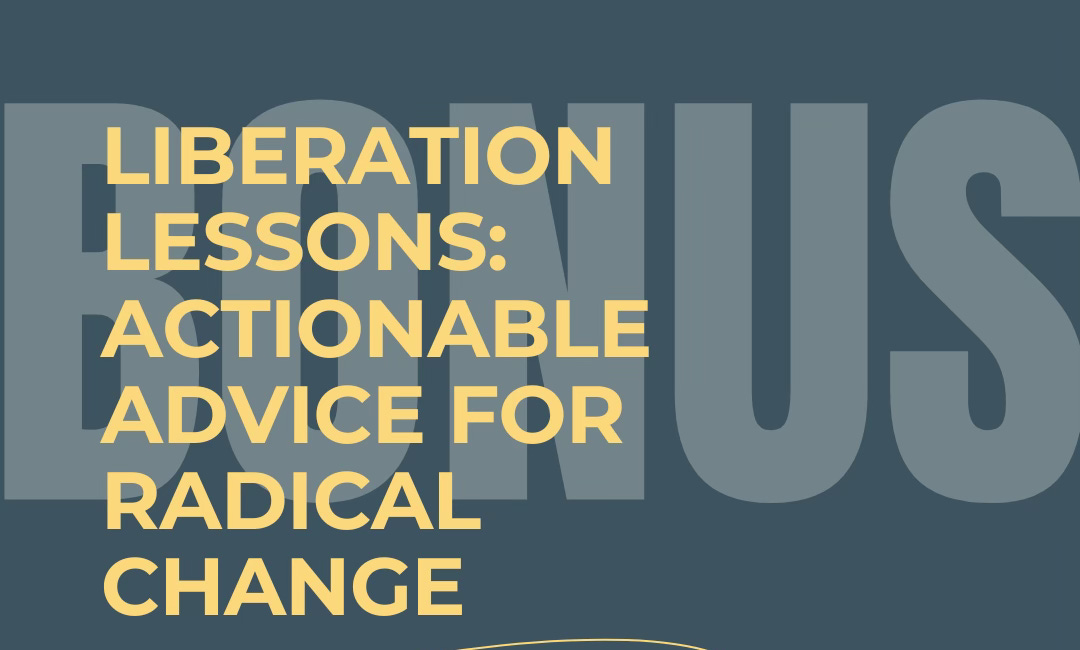
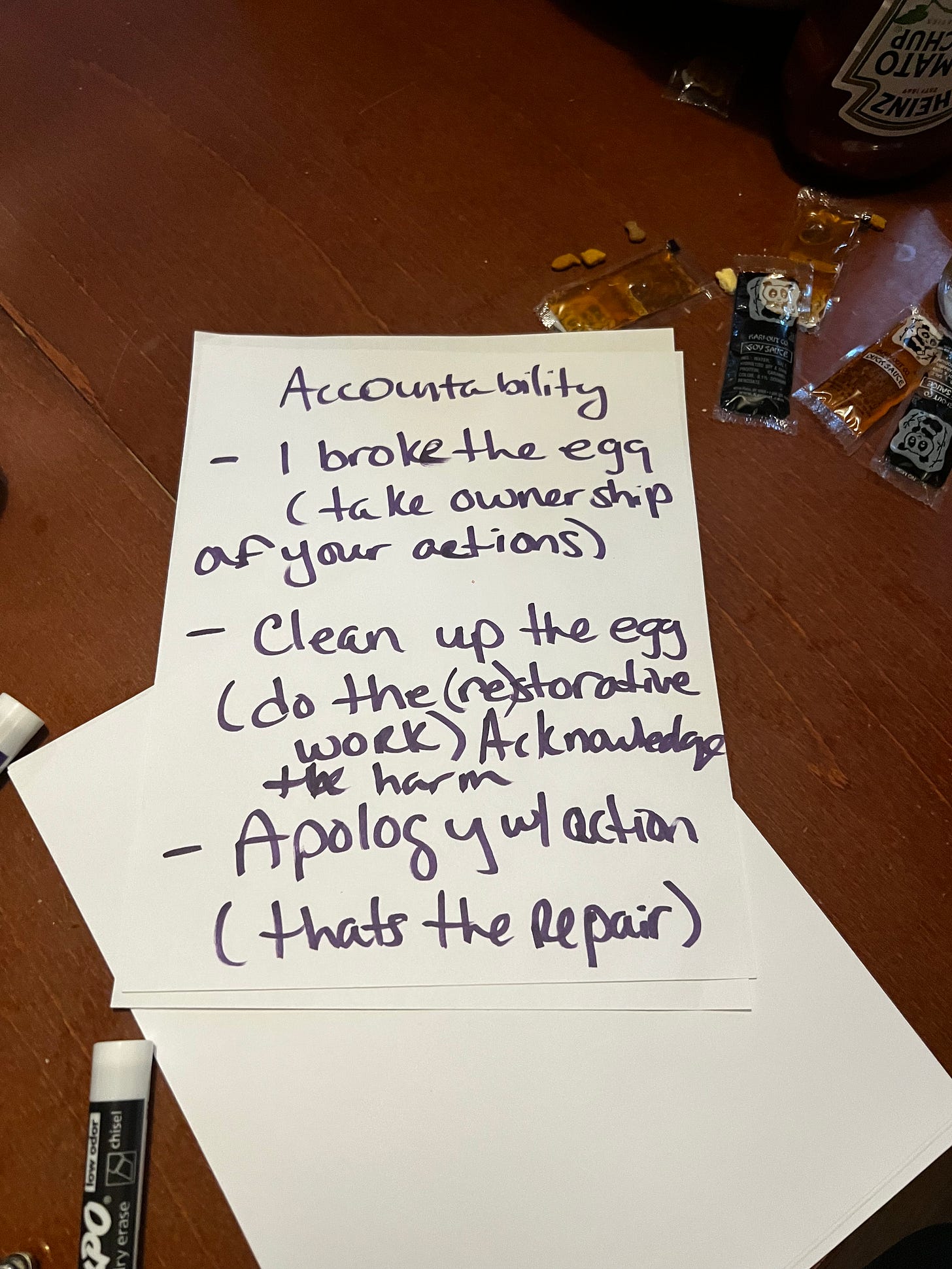

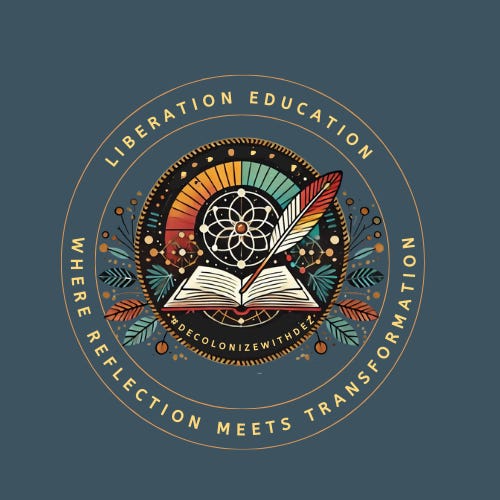

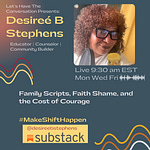


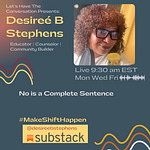

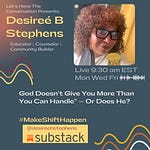
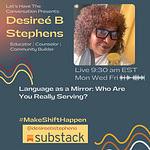
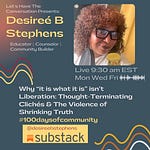
Share this post